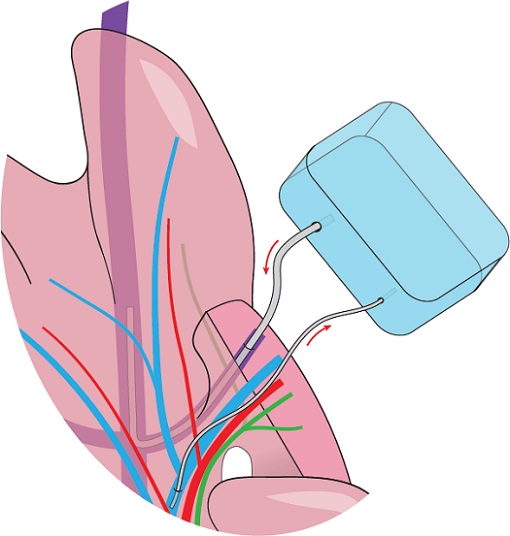Veryst is proud to have supported 3D BioLabs LLC with a study detailed in its recent publication titled “Rodent Model for Orthotopic Implantation of Engineered Liver Devices." The publication presents a novel surgical technique to provide blood supply to implanted cellularized devices that augment or replace liver tissue function.
Advances in the field of tissue engineering and regenerative medicine have led to tools and materials to create living tissue replacements designed to restore tissue lost to disease, trauma, or congenital deformity. Testing these tissue replacements in animals is often required for early-stage development and before use in humans. Moreover, such tissue replacements are often produced in a lab setting and require immediate blood supply upon implantation, necessitating the development of supporting protocols such as the new surgical technique developed by 3D BioLabs. The results of the study were published online in the journal Tissue Engineering Part C: Methods (Vol. 29, Issue 1) on 17 Jan. 2023. Read the article at https://www.liebertpub.com/doi/10.1089/ten.tec.2022.0174.
“3D BioLabs has engaged Veryst Engineering since 2016 to help bring our novel implantable living tissue device idea from the drawing board to reality,” says Dr. Joseph Vacanti, M.D., Scientific Founder of 3D BioLabs LLC and also the John Homans Professor of Surgery at Harvard Medical School and Post Chief at Massachusetts General Hospital. “Veryst has used their expertise in fluid mechanics, structural mechanics, and material science to help develop a practical tissue device design based on fundamental engineering science. We’ve continued to collaborate through our experimental phase to refine our design as we work to bring this new technology to market.”
The study was led by Dr. Vacanti and Dr. Tatev Sahakyants, and supported by Dr. Craig Neville, Dr. Tyler Lieberthal, and Dr. Carly Comer from 3D BioLabs. Most of the 3D BioLabs team are also affiliated with Harvard Medical School or Massachusetts General Hospital.
Veryst principals Dr. Matthew Hancock and Dr. Andrew Spann are also co-authors of the publication and provided engineering guidance related to blood flow and device connectivity, including anticoagulant system integration. Other Veryst engineers were also involved in the study. Stay tuned for future publications and presentations about other aspects of this exciting work!
